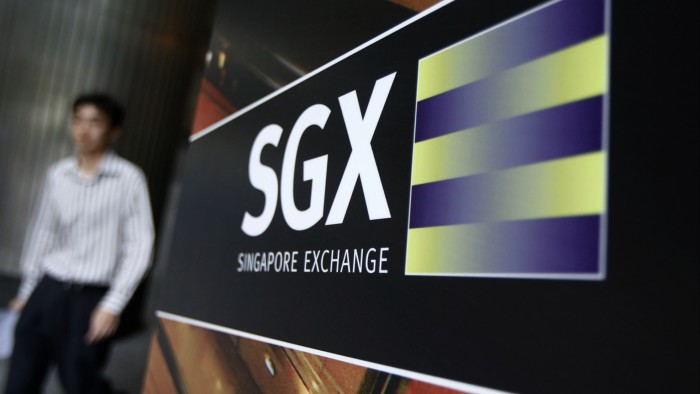Unlock the Editor’s Digest for free
Roula Khalaf, Editor of the FT, selects her favourite stories in this weekly newsletter.
The number of companies listed on Singapore’s stock exchange has hit a two-decade low after just four companies went public this year and several delisted, with the city-state’s regulator investigating how to halt the equity market’s slide.
The number of companies on the Singapore Exchange fell to 617 in October, the lowest since September 2004. The figure has been in steady decline since hitting a high of 782 in 2013, with domestic companies attracted to overseas listings, especially in larger and more heavily traded markets such as the US.
“I surely hope that this year is a low point,” said Clifford Lee, head of the investment bank at DBS, south-east Asia’s biggest lender and Singapore’s most valuable public company. “It’s a result of various factors coming together.”
Shein, the Chinese fast-fashion business based in Singapore since 2022, is considering a London listing with a potential £50bn market valuation, which would make it one of the UK’s largest public companies. Several of Singapore’s best-known businesses, including superapp Grab and ecommerce group Sea, have opted for New York listings in recent years.
Singapore has benefited from a flood of private capital flowing into the city-state, which has coincided with a burgeoning family office sector, while the SGX has also built up strong bond trading, derivatives and real estate investment trust markets. But it has struggled to repeat that growth with initial public offerings.
Over the summer, the Monetary Authority of Singapore launched a review of the country’s equity markets, with a panel that included the heads of the SGX, monetary authority and Temasek, the state-owned investment company.
The group is due to report its findings next August and has so far discussed ways of attracting more fund managers to invest in the stock market in order to address demand issues, while relaxing some disclosure rules and investor safeguards to encourage more companies to list, according to a person involved in the talks.
“It’s a chicken and an egg situation,” the person said. “We have to make it attractive for good companies to list and see more fund managers in the market, and they will only be attracted by the prospect of investing in good companies.”
The regulator said in a statement: “Many ideas have been surfaced as the review group is engaging broadly with many groups of stakeholders and the review group discussions are still ongoing.”
Several investment bankers told the Financial Times that 2024 was likely to be the nadir for listings in Singapore due to the political uncertainty of general elections around the world. They said there was pent-up demand, and they were working on several IPOs for next year.
The four companies that went public with a primary listing on the SGX this year — all of which were on the junior Catalist market — had a combined IPO value of just $31mn and included a chain of karaoke bars and an operator of Japanese restaurants.
The largest company to list, the Singapore Institute of Advanced Medicine healthcare group, has shed 71 per cent of its market value since its March IPO after reporting heavy losses. Its auditor, PwC, raised questions about its ability to continue as a going concern over the summer.
Stock markets around the world — notably London — have struggled to attract listings in the face of fierce competition and high valuations in the US. The amount raised through IPOs across south-east Asia this year is the lowest in at least 10 years, according to Dealogic.
Even so, Malaysia has had 46 IPOs this year, compared with 39 in Indonesia and 28 in Thailand. While the Philippines had just three listings, their total value of $197mn far outpaced Singapore’s $31mn.
Most of the companies that listed in other south-east Asian markets were domestic, whereas Singapore is positioning itself as a global hub for international public companies.
“The strategic infrastructure is here, the liquidity available in the market to invest in new listings is here,” said DBS’s Lee, who is involved in the MAS review. “Now we need a good supply of companies choosing to list. We have a healthy pipeline for the year ahead. It’s like a well-oiled, sleek machine that hasn’t been used.”
One option often mooted is whether to allow Singapore’s compulsory savings system — the Central Provident Fund, typically used to finance retirement, healthcare and property purchases — to invest more in the domestic stock market.
“That would create new pools of money to help drive up multiples and would probably spark IPOs,” said Jayden Vantarakis, head of south-east Asian equities research at Macquarie, who covers the SGX.
But he doubts that such reforms will materialise and downgraded the SGX from “outperform” to “neutral” in November, partly on expectations that the MAS review would fail to prevent the decline in listings.
Additional reporting by Haohsiang Ko in Hong Kong
Read the full article here




